- Home
- Harry Harrison
Planet of the Damned bb-1 Page 2
Planet of the Damned bb-1 Read online
Page 2
The thoughts and attitudes of the people were, however, going through a great transformation. Many attempts were made to develop some form of stable society and social relationship. Again, little record exists of these early trials, other than the fact of their culmination in the Twenties.
To understand the Twenties, you have to understand the unusual orbit that Anvhar tracks around its sun, 70 Ophiuchi. There are other planets in this system, all of them more or less conforming to the plane of the ecliptic. Anvhar is obviously a rogue, perhaps a captured planet of another sun. For the greatest part of its 780-day year it arcs far out from its primary, in a high-angled sweeping cometary orbit. When it returns there is a brief, hot summer of approximately eighty days before the long winter sets in once more. This severe difference in seasonal change has caused profound adaptations in the native life forms. During the winter most of the animals hibernate, the vegetable life lying dormant as spores or seeds. Some of the warm-blooded herbivores stay active in the snow-covered tropics, preyed upon by fur-insulated carnivores. Though unbelievably cold, the winter is a season of peace in comparison to the summer.
For summer is a time of mad growth. Plants burst into life with a strength that cracks rocks, growing fast enough for the motion to be seen. The snowfields melt into mud and within days a jungle stretches high into the air. Everything grows, swells, proliferates. Plants climb on top of plants, fighting for the life-energy of the sun. Everything is eat and be eaten, grow and thrive in that short season. Because when the first snow of winter falls again, ninety per cent of the year must pass until the next coming of warmth.
Mankind has had to adapt to the Anvharian cycle in order to stay alive. Food must be gathered and stored, enough to last out the long winter. Generation after generation had adapted until they look on the mad seasonal imbalance as something quite ordinary. The first thaw of the almost nonexistent spring triggers a wide-reaching metabolic change in the humans. Layers of subcutaneous fat vanish and half-dormant sweat glands come to life. Other changes are more subtle than the temperature adjustment, but equally important. The sleep centre of the brain is depressed. Short naps or a night’s rest every third or fourth day becomes enough. Life takes on a hectic and hysterical quality that is perfectly suited to the environment. By the time of the first frost, rapid-growing crops have been raised and harvested, sides of meat either preserved or frozen in mammoth lockers. With this supreme talent of adaptability mankind has become part of the ecology and guaranteed his own survival during the long winter.
Physical survival has been guaranteed. But what about mental survival? Primitive Earth Eskimos can fall into a long doze of half-conscious hibernation. Civilized men might be able to do this, but only for the few cold months of terrestrial midwinter. It would be impossible to do during a winter that is longer than an Earth year. With all the physical needs taken care of, boredom became the enemy of any Anvharian who was not a hunter. And even the hunters could not stay out on solitary trek all winter. Drink was one answer, and violence another. Alcoholism and murder were the twin terrors of the cold season, after the Breakdown.
It was the Twenties that ended all that. When they became a part of normal life the summer was considered just an interlude between games. The Twenties were more than just a contest—they became a way of life that satisfied all the physical, competitive and intellectual needs of this unusual planet. They were a decathlon—rather a double decathlon—raised to its highest power, where contests in chess and poetry composition held equal place with those in ski-jumping and archery. Each year there were two planet-wide contests held, one for men and one for women. This was not an attempt at sexual discrimination, but a logical facing of facts. Inherent differences prevented fair contests—for example, it is impossible for a woman to win a large chess tournament—and this fact was recognized. Anyone could enter for any number of years. There were no scoring handicaps.
When the best man won he was really the best man. A complicated series of playoffs and eliminations kept contestants and observers busy for half the winter. They were only preliminary to the final encounter that lasted a month, and picked a single winner. That was the title he was awarded. Winner. The man—and woman—who had bested every other contestant on the entire planet and who would remain unchallenged until the following year.
Winner. It was a title to take pride in. Brion stirred weakly on his bed and managed to turn so he could look out of the window. Winner of Anvhar. His name was already slated for the history books, one of the handful of planetary heroes. School children would be studying him now, just as he had read of the Winners of the past. Weaving daydreams and imaginary adventures around Brion’s victories, hoping and fighting to equal them someday. To be a Winner was the greatest honour in the universe.
Outside, the afternoon sun shimmered weakly in a dark sky. The endless ice fields soaked up the dim light, reflecting it back as a colder and harsher illumination. A single figure on skis cut a line across the empty plain; nothing else moved. The depression of the ultimate fatigue fell on Brion and everything changed, as if he looked in a mirror at a previously hidden side.
He saw suddenly—with terrible clarity—that to be a Winner was to be absolutely nothing. Like being the best flea, among all the fleas on a single dog.
What was Anvhar after all? An ice-locked planet, inhabited by a few million human fleas, unknown and unconsidered by the rest of the galaxy. There was nothing here worth fighting for; the wars after the Breakdown had left them untouched. The Anvharians had always taken pride in this—as if being so unimportant that no one else even wanted to come near you could possibly be a source of pride. All the other worlds of man grew, fought, won, lost, changed. Only on Anvhar did life repeat its sameness endlessly, like a loop of tape in a player…
Brion’s eyes were moist; he blinked. Tears! Realization of this incredible fact wiped the maudlin pity from his mind and replaced it with fear. Had his mind snapped in the strain of the last match? These thoughts weren’t his. Self-pity hadn’t made him a Winner—why was he feeling it now? Anvhar was his universe—how could he even imagine it as a tag-end planet at the outer limb of creation? What had come over him and induced this inverse thinking?
As he thought the question, the answer appeared at the same instant. Winner Ihjel. The fat man with the strange pronouncements and probing questions. Had he cast a spell like some sorcerer—or the devil in Faust? No, that was pure nonsense. But he had done something. Perhaps planted a suggestion when Brion’s resistance was low. Or used subliminal vocalization like the villain in Cerberus Chained. Brion could find no adequate reason on which to base his suspicions. But he knew, with sure positiveness, that Ihjel was responsible.
He whistled at the sound-switch next to his pillow and the repaired communicator came to life. The duty nurse appeared in the small screen.
“The man who was here today,” Brion said, “Winner Ihjel. Do you know where he is? I must contact him.”
For some reason this flustered her professional calm. The nurse started to answer, excused herself, and blanked the screen. When it lit again a man in guard’s uniform had taken her place.
“You made an inquiry,” the guard said, “about Winner Ihjel. We are holding him here in the hospital, following the disgraceful way in which he broke into your room.”
“I have no charges to make. Will you ask him to come and see me at once?”
The guard controlled his shock. “I’m sorry, Winner—I don’t see how we can. Dr Caulry left specific orders that you were not to be—”
“The doctor has no control over my personal life.” Brion interrupted. “I’m not infectious, nor ill with anything more than extreme fatigue. I want to see that man. At once.”
The guard took a deep breath, and made a quick decision. “He is on the way up now,” he said, and rung off.
“What did you do to me?” Brion asked as soon as Ihjel had entered and they were alone. “You won’t deny that you have put alien thoughts in m
y head?”
“No, I won’t deny it. Because the whole point of my being here is to get those ‘alien’ thoughts across to you.”
“Tell me how you did it,” Brion insisted. “I must know.”
“I’ll tell you—but there are many things you should understand first, before you decide to leave Anvhar. You must not only hear them, you will have to believe them. The primary thing, lie clue to the rest, is the true nature of your life here. How do you think the Twenties originated?”
Before he answered, Brion carefully took a double dose of the mild stimulant he was allowed. “I don’t think,” he said; “I know. It’s a matter of historical record. The founder of the games was Giroldi, the first contest was held in 378 A.B. The Twenties have been held every year since then. They were strictly local affairs in the beginning, but were soon well established on a planet-wide scale.”
“True enough,” Ihjel said. “But you’re describing what happened. I asked you how the Twenties originated. How could any single man take a barbarian planet, lightly inhabited by half-mad hunters and alcoholic farmers, and turn it into a smooth-running social machine built around the artificial structure of the Twenties? It just couldn’t be done.”
“But it was done!” Brion insisted. “You can’t deny that. And there is nothing artificial about the Twenties. They are a logical way to live a life on a planet like this.”
Ihjel laughed, a short ironic bark. “Very logical,” he said; “but how often does logic have anything to do with the organization of social groups and governments? You’re not thinking. Put yourself in founder Giroldi’s place. Imagine that you have glimpsed the great idea of the Twenties and you want to convince others. So you walk up to the nearest louse-ridden, brawling, superstitious, booze-embalmed hunter and explain clearly how a program of his favourite sports—things like poetry, archery and chess—can make his life that much more interesting and virtuous. You do that. But keep your eyes open at the same time, and be ready for a fast draw.”
Even Brion had to smile at the absurdity of the suggestion. Of course it couldn’t happen that way. Yet, since it had happened, there must be a simple explanation.
“We can beat this back and forth all day,” Ihjel told him, “and you won’t get the right idea unless—” He broke off suddenly, staring at the communicator. The operation light had come on, though the screen stayed dark. Ihjel reached down a meaty hand and pulled loose the recently connected wires. “That doctor of yours is very curious—and he’s going to stay that way. The truth behind the Twenties is none of his business. But it’s going to be yours. You must come to realize that the life you lead here is a complete and artificial construction, developed by Societies experts and put into application by skilled field workers.”
“Nonsense!” Brion broke in. “Systems of society can’t be dreamed up and forced on people like that. Not without bloodshed and violence.”
“Nonsense, yourself,” Ihjel told him. “That may have been true in the dawn of history, but not any more. You have been reading too many of the old Earth classics; you imagine that we still live in the Ages of Superstition. Just because fascism and communism were once forced on reluctant populations, you think this holds true for all time. Go back to your books. In exactly the same era democracy and self-government were adapted by former colonial states, like India and the Union of North Africa, and the only violence was between local religious groups. Change is the lifeblood of mankind. Everything we today accept as normal was at one time an innovation. And one of the most recent innovations is the attempt to guide the societies of mankind into something more consistent with the personal happiness of individuals.”
“The God complex,” Brion said; “forcing human lives into a mould whether they want to be fitted into it or not.”
“Societies can be that,” Ihjel agreed. “It was in the beginning, and there were some disastrous results of attempts to force populations into a political climate where they didn’t belong. They weren’t all failures—Anvhar here is a striking example of how good the technique can be when correctly applied. It’s not done this way any more, though. As with all of the other sciences, we have found out that the more we know, the more there is to know. We no longer attempt to guide cultures towards what we consider a beneficial goal. There are too many goals, and from our limited vantage point it is hard to tell the good ones from the bad ones. All we do now is try to protect the growing cultures, give a little jolt to the stagnating ones—and bury the dead ones. When the work was first done here on Anvhar the theory hadn’t progressed that far. The understandably complex equations that determine just where in the scale from a Type I to a Type V a culture is, had not yet been completed. The technique then was to work out an artificial culture that would be most beneficial for a planet, then bend it into the mould.”
“How can that be done?” Brion asked. “How was it done here?”
“We’ve made some progress—you’re finally asking How. The technique here took a good number of agents, and a great deal of money. Personal honour was emphasized in order to encourage duelling, and this led to a heightened interest in the technique of personal combat. When this was well entrenched Giroldi was brought in, and he showed how organized competitions could be more interesting than haphazard encounters. Tying the intellectual aspects onto the framework of competitive sports was a little more difficult, but not overwhelmingly so. The details aren’t important; all we are considering now is the end product. Which is you. You’re needed very much.”
“Why me?” Brion asked. “Why am I special? Because I won the Twenties? I can’t believe that. Taken objectively, there isn’t that much difference between myself and the ten runner-ups. Why don’t you ask one of them? They could do your job as well as I.”
“No, they couldn’t. I’ll tell you later why you are the only man I can use. Our time is running out and I must convince you of some other things first.” Ihjel glanced at his watch. “We have less than three hours to deadline. Before that time I must explain enough of our work to you to enable you to decide voluntarily to join us.”
“A very tall order,” Brion said. “You might begin by telling me just who this mysterious ‘we’ is that you keep referring to.”
“The Cultural Relationships Foundation. A non-governmental body, privately endowed, existing to promote peace and ensure the sovereign welfare of independent planets, so that all will prosper from the good will and commerce thereby engendered.”
“Sounds as if you’re quoting,” Brion told him. “No one could possibly make up something that sounds like that on the spur of the moment.”
“I was quoting, from our charter of organization. Which is all very fine in a general sense, but I’m talking specifically now. About you. You are the product of a tightly knit and very advanced society. Your individuality has been encouraged by your growing up in a society so small in population that a mild form of government control is necessary. The normal Anvharian education is an excellent one, and participation in the Twenties has given you a general and advanced education second to none in the galaxy. It would be a complete waste of your entire life if you now took all this training and wasted it on some rustic farm.”
“You give me very little credit. I plan to teach—”
“Forget Anvhar!” Ihjel cut him off with a chop of his hand. “This world will roll on quite successfully whether you are here or not. You must forget it, think of its relative unimportance on a galactic scale, and consider instead the existing, suffering hordes of mankind. You must think what you can do to help them.”
“But what can I do—as an individual? The day is long past when a single man, like Caesar or Alexander, could bring about world-shaking changes.”
“True—but not true,” Ihjel said. “There are key men in every conflict of forces, men who act like catalysts applied at the right instant to start a chemical reaction. You might be one of these men, but I must be honest and say that I can’t prove it yet. So in order to save time
and endless discussion, I think I will have to spark your personal sense of obligation.”
“Obligation to whom?”
“To mankind, of course, to the countless billions of dead who kept the whole machine rolling along that allows you the full, long and happy life you enjoy today. What they gave to you, you must pass on to others. This is the keystone of humanistic morals.”
“Agreed. And a very good argument in the long run. But not one that is going to tempt me out of this bed within the next three hours.”
“A point of success,” Ihjel said. “You agree with the general argument. Now I apply it specifically to you. Here is the statement I intend to prove. There exists a planet with a population of seven million people. Unless I can prevent it, this planet will be completely destroyed. It is my job to stop that destruction, so that is where I am going now. I won’t be able to do the job alone. In addition to others, I need you. Not anyone like you—but you, and you alone.”
“You have precious little time left to convince me of all that,” Brion told him, “so let me make the job easier for you. The work you do, this planet, the imminent danger of the people there—these are all facts that you can undoubtedly supply. I’ll take a chance that this whole thing is not a colossal bluff, and admit that given time, you could verify them all. This brings the argument back to me again. How can you possibly prove that I am the only person in the galaxy who can help you?”

 Arm of the Law
Arm of the Law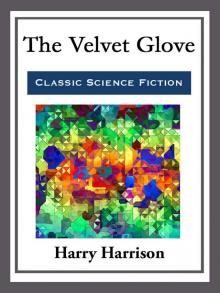 The Velvet Glove
The Velvet Glove The K-Factor
The K-Factor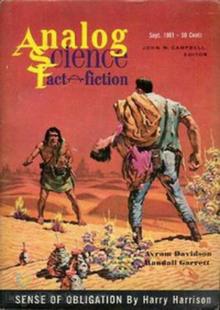 Sense of Obligation
Sense of Obligation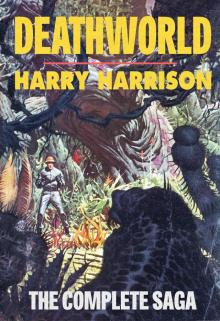 Deathworld: The Complete Saga
Deathworld: The Complete Saga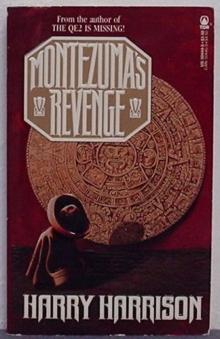 Montezuma's Revenge
Montezuma's Revenge The Ethical Engineer
The Ethical Engineer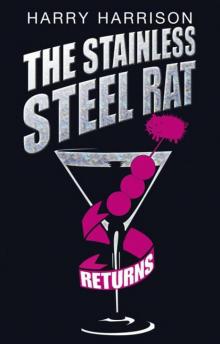 The Stainless Steel Rat Returns
The Stainless Steel Rat Returns The Misplaced Battleship
The Misplaced Battleship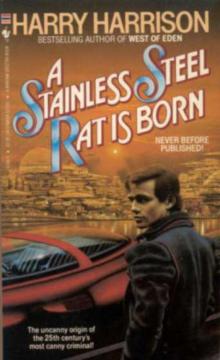 The Stainless Steel Rat is Born
The Stainless Steel Rat is Born Planet of the Damned bb-1
Planet of the Damned bb-1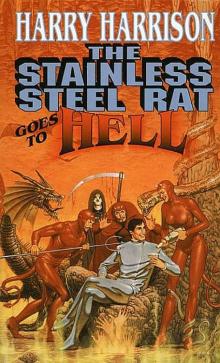 The Stainless Steel Rat Goes to Hell ssr-10
The Stainless Steel Rat Goes to Hell ssr-10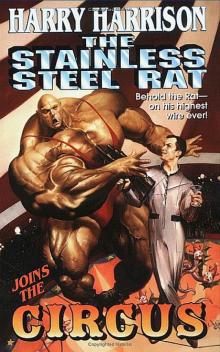 The Stainless Steel Rat Joins the Circus ssr-11
The Stainless Steel Rat Joins the Circus ssr-11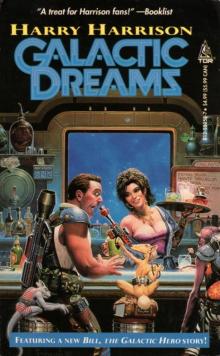 Galactic Dreams
Galactic Dreams The Harry Harrison Megapack
The Harry Harrison Megapack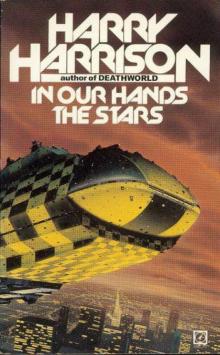 In Our Hands the Stars
In Our Hands the Stars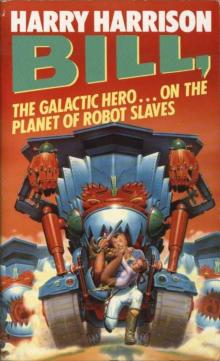 On the Planet of Robot Slaves
On the Planet of Robot Slaves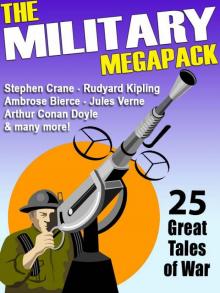 The Military Megapack
The Military Megapack Make Room! Make Room!
Make Room! Make Room! Wheelworld
Wheelworld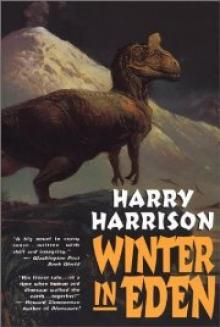 Winter in Eden e-2
Winter in Eden e-2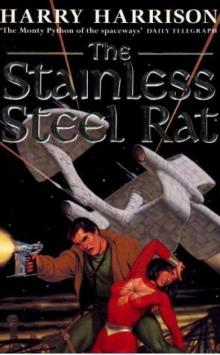 The Stainless Steel Rat
The Stainless Steel Rat The Stainless Steel Rat Goes to Hell
The Stainless Steel Rat Goes to Hell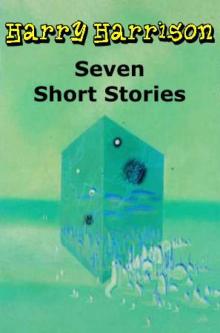 Harry Harrison Short Stoies
Harry Harrison Short Stoies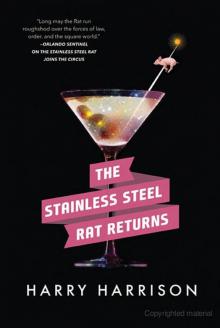 Stainless Steel Rat 11: The Stainless Steel Rat Returns
Stainless Steel Rat 11: The Stainless Steel Rat Returns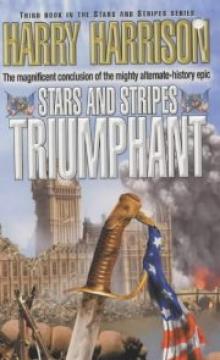 Stars and Stripes Triumphant sas-3
Stars and Stripes Triumphant sas-3 West of Eden
West of Eden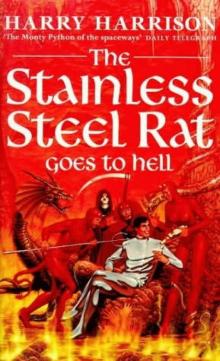 The Stainless Steel Rat Go's To Hell
The Stainless Steel Rat Go's To Hell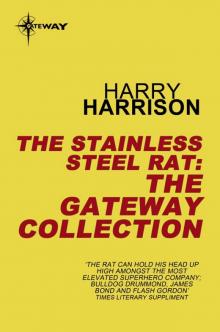 The Stainless Steel Rat eBook Collection
The Stainless Steel Rat eBook Collection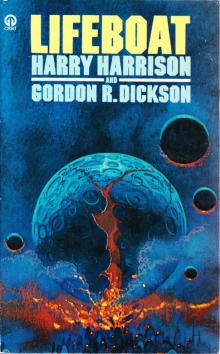 Lifeboat
Lifeboat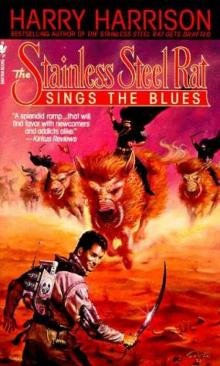 The Stainless Steel Rat Sings the Blues
The Stainless Steel Rat Sings the Blues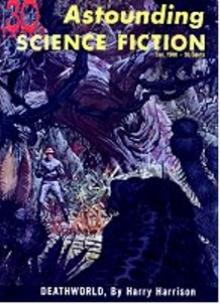 Deathworld tds-1
Deathworld tds-1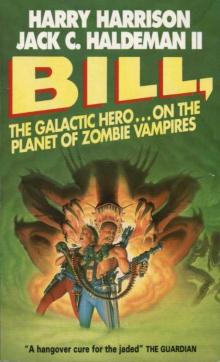 On the Planet of Zombie Vampires
On the Planet of Zombie Vampires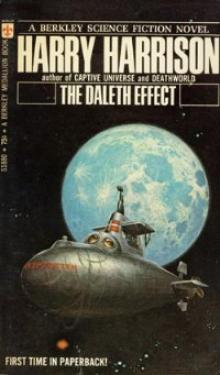 The Daleth Effect
The Daleth Effect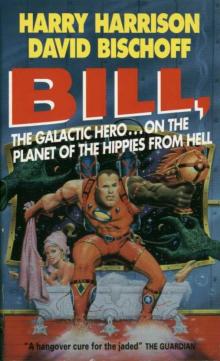 On The Planet Of The Hippies From Hell
On The Planet Of The Hippies From Hell The Turing Option
The Turing Option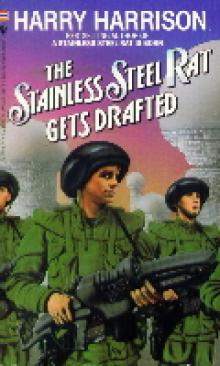 The Stainless Steel Rat Gets Drafted
The Stainless Steel Rat Gets Drafted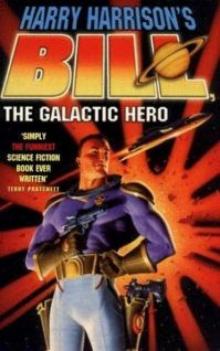 Bill, the Galactic Hero btgh-1
Bill, the Galactic Hero btgh-1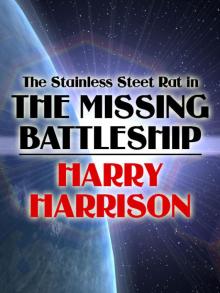 The Stainless Steel Rat in The Missing Battleship
The Stainless Steel Rat in The Missing Battleship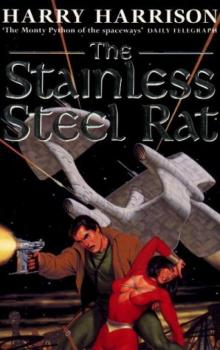 The Stainless Steel Rat ssr-1
The Stainless Steel Rat ssr-1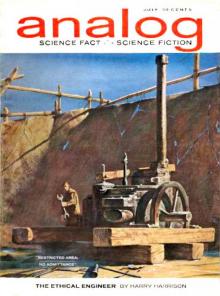 The Ethical Engineer (the deathworld series)
The Ethical Engineer (the deathworld series)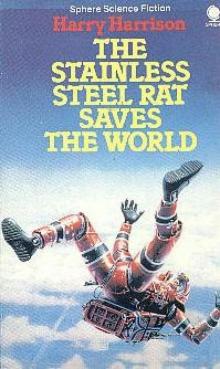 The Stainless Steel Rat Saves the World ssr-3
The Stainless Steel Rat Saves the World ssr-3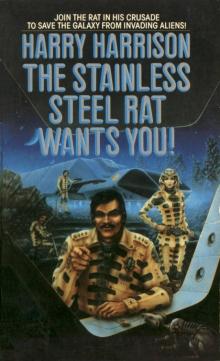 The Stainless Steel Rat Wants You
The Stainless Steel Rat Wants You One King's Way thatc-2
One King's Way thatc-2 The Stainless Steel Rat Saves The World
The Stainless Steel Rat Saves The World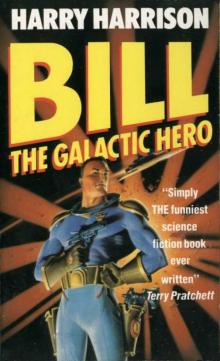 Bill, the Galactic Hero
Bill, the Galactic Hero Stars & Stripes Forever
Stars & Stripes Forever Stars and Stripes In Peril sas-2
Stars and Stripes In Peril sas-2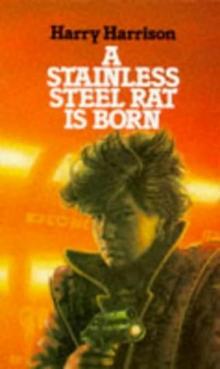 A Stainless Steel Rat Is Born ssr-6
A Stainless Steel Rat Is Born ssr-6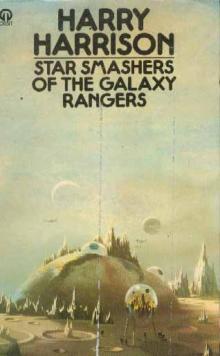 Star Smashers of the Galaxy Rangers
Star Smashers of the Galaxy Rangers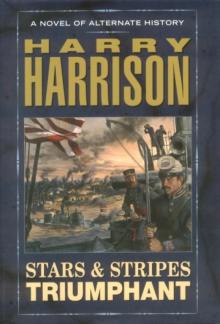 Stars & Stripes Triumphant
Stars & Stripes Triumphant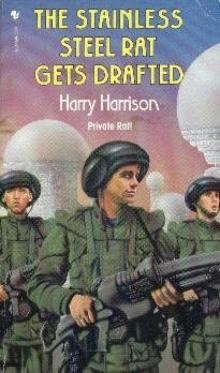 The Stainless Steel Rat Gets Drafted ssr-7
The Stainless Steel Rat Gets Drafted ssr-7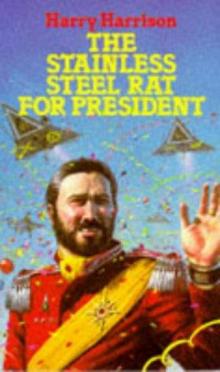 The Stainless Steel Rat for President ssr-5
The Stainless Steel Rat for President ssr-5 The Hammer & the Cross
The Hammer & the Cross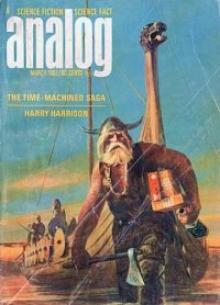 The Technicolor Time Machine
The Technicolor Time Machine The Hammer and The Cross thatc-1
The Hammer and The Cross thatc-1 King and Emperor thatc-3
King and Emperor thatc-3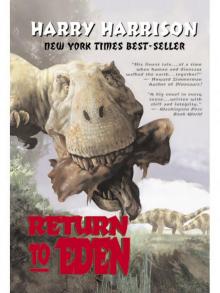 Return to Eden
Return to Eden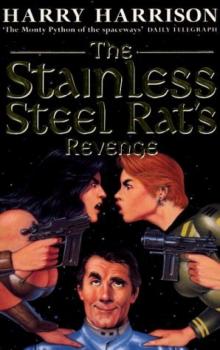 The Stainless Steel Rat’s Revenge ssr-2
The Stainless Steel Rat’s Revenge ssr-2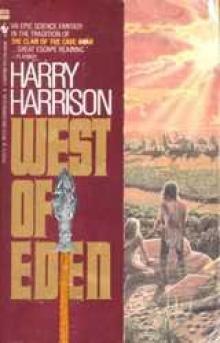 West of Eden e-1
West of Eden e-1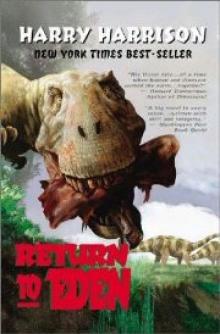 Return to Eden e-3
Return to Eden e-3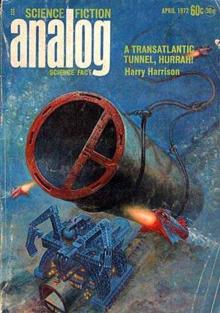 A Transatlantic Tunnel, Hurrah!
A Transatlantic Tunnel, Hurrah! Stars and Stripes Forever sas-1
Stars and Stripes Forever sas-1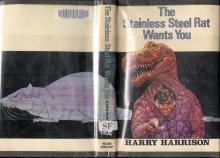 The Stainless Steel Rat Wants You ssr-4
The Stainless Steel Rat Wants You ssr-4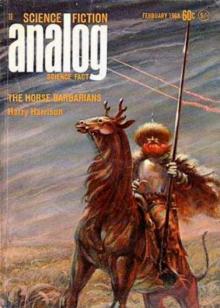 The Horse Barbarians tds-3
The Horse Barbarians tds-3 Planet of the Damned and Other Stories: A Science Fiction Anthology (Five Books in One Volume!)
Planet of the Damned and Other Stories: A Science Fiction Anthology (Five Books in One Volume!)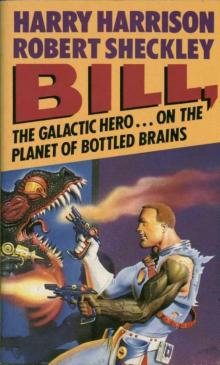 On the Planet of Bottled Brains
On the Planet of Bottled Brains Stars And Stripes In Peril
Stars And Stripes In Peril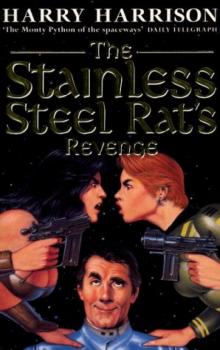 The Stainless Steel Rat's Revenge
The Stainless Steel Rat's Revenge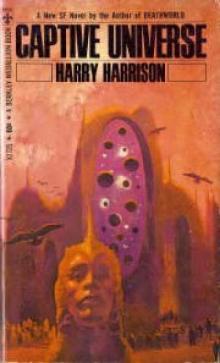 Captive Universe
Captive Universe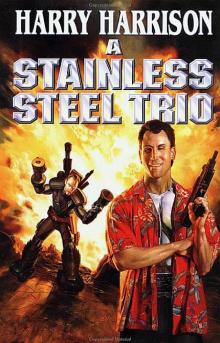 The Stainless Steell Rat Sings the Blues ssr-8
The Stainless Steell Rat Sings the Blues ssr-8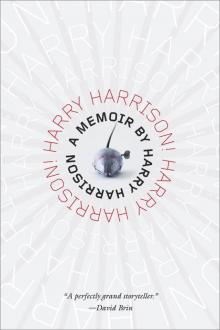 Harry Harrison! Harry Harrison!
Harry Harrison! Harry Harrison!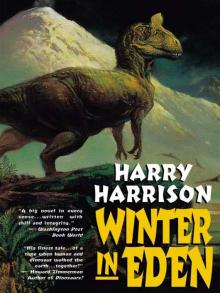 Winter in Eden
Winter in Eden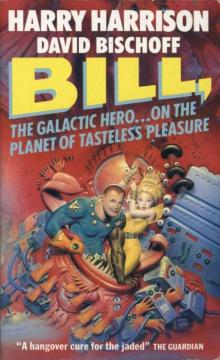 On the Planet of Tasteless Pleasures
On the Planet of Tasteless Pleasures